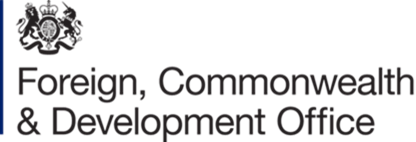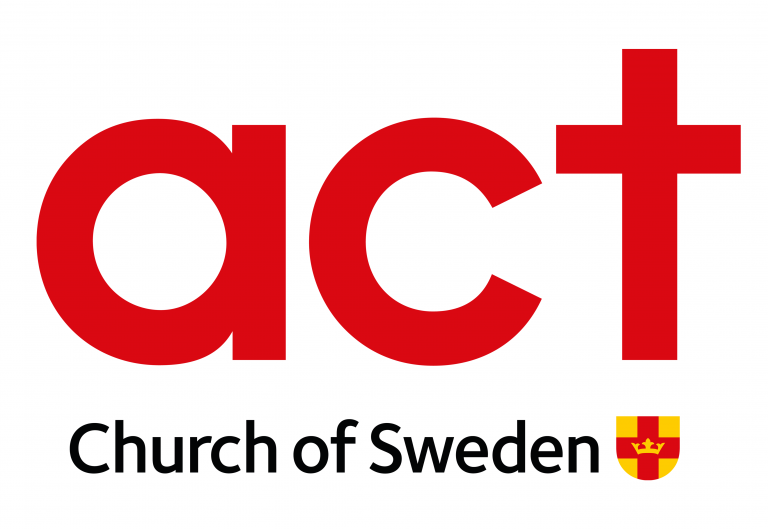The Core Humanitarian Standard on Quality and Accountability (CHS) helps aid organisations to enhance their accountability to people affected by crisis.
By applying and measuring performance against the CHS, organisations can better fulfill their commitments to people affected by crises. As more organisations undergo CJHS verification, the standard is becoming a collective tool to advance localization and streamline multiple due diligence processes.
Many governments, pooled funds, and other stakeholders, including UN and NGO funding bodies, recognise the CHS as the established framework for ensuring higher standards of quality and accountability. Increasingly, they request their partners to complete CHS verification to demonstrate adherence. Some funders use the CHS to simplify or “passport” elements of due diligence, reducing bureaucratic hurdles for aid organisations seeking funding.
Building a more accountable aid system requires action from all actors. The CHS – a globally recognized and measurable standard – offers a practical solution. We urge humanitarian donors to encourage and support their partners to measure their adherence to CHS commitments as part of continuous improvement efforts.
Below is a summary of governments, funding bodies and other stakeholders who require or recognise the CHS and CHS verification.
If you require further information on how the CHS could support your accountability and localization efforts, please contact verification@chsalliance.org
Require or formally request use of CHS
I.e. concrete/formal requests for adopting the CHS as standard and using its Verification options. It is a higher level of commitment and acceptance.
| Name | Organisation type | How | Accepted CHS verification option |
| Denmark, Danish Emergency Relief Fund (DERF) | Government | Requires organisations to adopt the CHS. CHS Certification and Independent Verification automatically qualifies partners. |
|
| Denmark, Ministry of Foreign Affairs/ DANIDA | Government/Public | Independent quality assurance against the CHS is a prerequisite for funding. |
|
| European Commission, Directorate-General for European Civil Protection and Humanitarian Aid Operations (DG ECHO) | International Organisation | DG ECHO accepts Framework Partnership Assessments (FPA) and Programmatic Partnership Assessments submitted by HQAI as ex ante auditor.
FPA auditors other than HQAI may use HQAI audit information to fill the ECHO ex-ante FPA. |
|
| Germany, German Federal Foreign Office (GFFO) | Government/Public | GFFO accepts the 3 CHS Verification options to shorten partner capacity assessment. |
|
| Ireland, Irish Aid | Government/Public | CHS verification is a minimum requirement for partners to apply for and obtain funding under Irish Aid’s multi annual funding . |
|
| Luxembourg, Ministry of Foreign and European Affairs | Government/Public | CHS is referenced in Luxembourg’s Humanitarian Action Strategy. Only CHS certified organisations are eligible for financial support by Luxembourg. |
|
| Netherlands, Dutch Relief Alliance (DRA) | Non-Governmental Organisation/Pooled Fund | Independent quality assurance against the CHS is a prerequisite for funding. |
|
| Sweden, Ministry of Foreign Affairs | Government/Public | Swedish civil society organisations can apply for up to 80% of their costs for the Humanitarian Quality Assurance Initiative (HQAI) CHS certification. |
|
| Sweden, Radiohjälpen | Non-Governmental Organisation/Pooled Fund | Applicant and implementing organisations are required to be CHS-certified or possess equivalent documented competence. |
|
| Switzerland, Swiss Solidarity | Private Foundation/Pooled Fund | Aid organisations verified against the CHS have access to streamlined partner capacity assessments. |
|
| United Kingdom, Disasters Emergency Committee (DEC) | Non-Governmental Organisation/Pooled Fund | Independent quality assurance against the CHS is a prerequisite for funding. |
|
| United Kingdom, Foreign Commonwealth and Development Office (FCDO) | Government/Public | Organisations certified under the CHS can now benefit from a streamlined application process when seeking FCDO grant funding. This certification, verified through independent audits by HQAI, demonstrates that organisations meet rigorous quality and accountability standards for humanitarian and development work.
Organisations seeking funding should ensure proposals take note and adopt the CHS among other standards. FCDO recognises and supports CHS SEAH initiatives, as well as HQAI verification work. |
|
Recognise CHS (without formal requirement)
I.e the general acknowledgement of the CHS as standard and/or its Verification options and/or general support, but without any formal requirement.
| Name | Organisation type | How |
| Austria, Ministry of European and International Affairs | Government/Public | Inclusion in the Humanitarian Strategy. Due diligence referencing to CHS. |
| Canada, Humanitarian Coalition | Non-Governmental Organisation/Pooled Fund | Reference of the CHS in the Codes and Standards of the Coalition |
| Canada, Canadian Foodgrains Bank | Non-Governmental Organisation/Pooled Fund | Reference of the CHS in the Standards and Affiliations of the Foodgrains Bank. |
| Grand Bargain | International Organisation | The Grand Bargain Workstream 6 – Participation Revolution includes several references to the adoption of the CHS by aid organisations and donor requiring funding partners to apply the CHS. |
| Inter Agency Standing Committee (IASC) | International Organisation | The IASC Commitments on Accountability to Affected Populations (CAAP) references the CHS. |
| Norway, Ministry of Foreign Affairs | Government/Public | Partners are encouraged to use recognise the Core Humanitarian Standard in their work. Norway supports passporting through relying on other donors’ due diligence assessments, such as the CHS in addition to their own assessment when considering entering into new partnerships. |
| Organisation for Economic Co-operation and Development (OECD) | International Organisation | The CHS is referenced as a key standard, and as one of the foundational document cited in the OECD DAC recommendations. |
| Sahel Regional Fund (SRF) | Non-Governmental Organisation/Pooled Fund | To uphold consistent standards across its funded projects, SRF requires its international partners to adhere to the CHS and reflects this expectation in its project selection process. As part of its due diligence, SRF generally requests partners to share evidence of CHS verification, including certification. The CHS is referenced in the SRF Strategic Framework. |
| Spain, Catalan Government | Government/Public | The CHS is referenced in the Catalan Development Cooperation Master Plan 2023-2026. |
| Spain, Ministry of Foreign Affairs/AECID | Government/Public | The CHS is referenced in the Spanish Strategy Humanitarian Action. |
| Spain, Government of Andalucia | Government/Public | The CHS is referenced in the Andalusian Plan for Development Cooperation. |
| Steering Committee for Humanitarian Response (SCHR) | Non-Governmental Organisation | The SCHR supports the CHS, including certification, as a preferred approach to systematically improving the quality and impact of humanitarian response. |
| Switzerland, Ministry of Foreign Affairs, International Cooperation | Government/Public | Switzerland has been a core donor until 2024. |
| United Nations, Office for the Coordination of Humanitarian Affairs (UN OCHA) / Inter Agency Standing Committee (IASC) | International Organisation | The Handbook for Humanitarian Coordinators references the CHS. |
| United States, U.S. Agency for International Development (USAID) | Government/Public | Recognition of the CHS as standard in several key policies and procedures, mostly around Accountability to Affected Population (AAP), Protection from Sexual Exploitation, Abuse and Harassment (PSEAH). |
Click here to download a comprehensive table with references and links to different actors.
In October 2024 the Donor Recognition Working Group for CHS Alliance members had its first meeting. The group will convene bimonthly to share information and advance how funders recognise and adopt the CHS and CHS verification. Download the working group TOR here. Contact verification@chsalliance.org for more information or to join.




